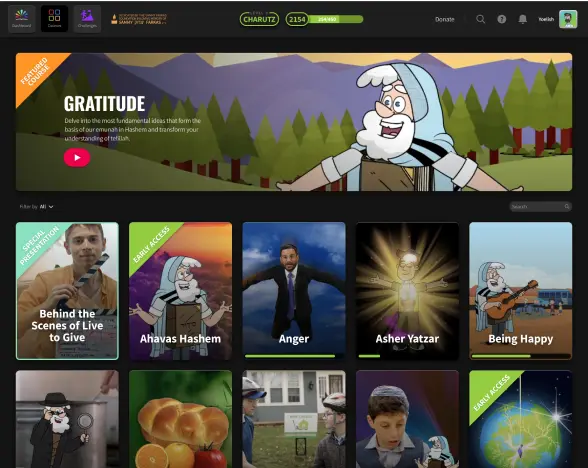
Why your kids crave stuff but feel empty inside
Ever notice how the more toys your kids accumulate, the less satisfied they seem? Last week, my neighbor's son received the latest gaming console — the one he'd been begging for all summer. By Tuesday, he was already asking what's next on his wish list.
Welcome to the great deception of our time: the belief that happiness comes from having more stuff.
The billion-dollar lie targeting our families
Every day, our children face a sophisticated assault on their neshamot. Advertisers spend billions crafting messages that whisper the same lie: "You'll be happy when you get this." Whether it's the newest sneakers, the latest gadget, or the trendiest backpack, the message is always the same — your life will be better when you acquire more.
But here's what they don't tell you: this approach to life creates what our Sages call spiritual darkness. The Chafetz Chaim writes that when people focus primarily on themselves, it causes separation and spreads darkness throughout the world. The Ramchal takes this further, explaining that caring only about ourselves is the very source of evil, while kedusha comes from recognizing we're all connected and living for something greater than ourselves.
How consumer culture hijacked the first commandment
The most profound insight comes from examining the very first of the Aseres HaDibros: "Anochi Hashem Elokeicha" — "I am Hashem your God." Modern advertising has essentially rewritten this fundamental truth. Instead of "I am Hashem your God," our culture proclaims "I am god" — making the self the center of everything.
This isn't just philosophy — it's the root of our children's restlessness. When kids learn that life revolves around getting what they want, they're being trained in a worldview that directly contradicts Torah. No wonder studies show that depression rates have skyrocketed even as material wealth has increased dramatically.
The Live to Give series brilliantly illustrates how three boys discover this truth and decide to wage war against "look at me" culture by focusing on others instead.
Why giving actually makes kids happier
Here's the beautiful secret that advertisements will never share: giving makes us genuinely happy because it connects us to Hashem, the ultimate giver. When our children give, they're not just being nice — they're actualizing their neshamot by becoming more like their Creator.
Research consistently shows that people who spend money on others experience greater happiness than those who spend it on themselves. But we don't need studies to confirm what the Torah has always taught: "Olam chesed yibaneh" — the world is built on kindness. This isn't just about building the world; it's about building our children's character and joy.
The key is helping our kids understand that their souls crave connection, not possessions. Every act of giving strengthens that connection and brings genuine fulfillment.
Transform your home with these chesed strategies
Start a family chesed challenge: Each week, challenge every family member to find one new way to give. It could be as simple as helping a neighbor carry groceries or as elaborate as organizing a neighborhood cleanup.
Create "giving opportunities" from current possessions: Instead of always buying new things, help your children discover how their existing belongings can serve others. That guitar gathering dust could bring joy to someone learning to play.
Reframe gift-giving occasions: Before birthdays or Chanukah, spend time discussing how the celebrant can use their new gifts to help others. This shifts the focus from "what will I get?" to "how can I give?"
Establish regular chesed time: Set aside weekly family time specifically for acts of kindness. Make it as non-negotiable as Shabbos dinner — because in many ways, it's just as important for your family's spiritual health.
Model the joy of giving: Let your children see you genuinely excited about opportunities to help others. When they witness your enthusiasm for chesed, they'll naturally want to experience that same joy.
The truth is, our children are swimming in a culture that promises happiness through accumulation but delivers emptiness instead. By teaching them that real joy comes from giving — from becoming more like Hashem — we're offering them something far more valuable than any toy or gadget: we're giving them the secret to a genuinely fulfilling life.
Ready to help your family discover the joy of giving over getting? Torah Live's engaging videos and interactive challenges make these conversations natural and fun. Join thousands of families who are transforming screen time into soul-building time — where every lesson leads to lasting happiness!
